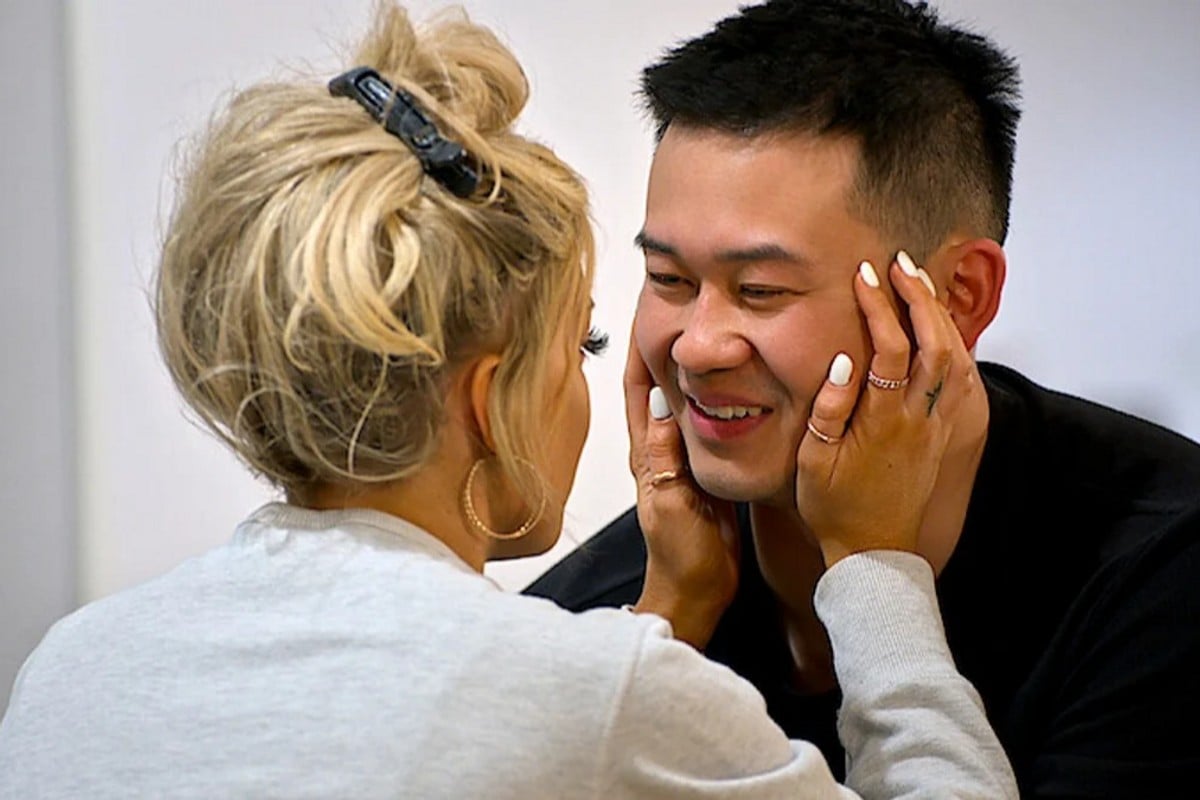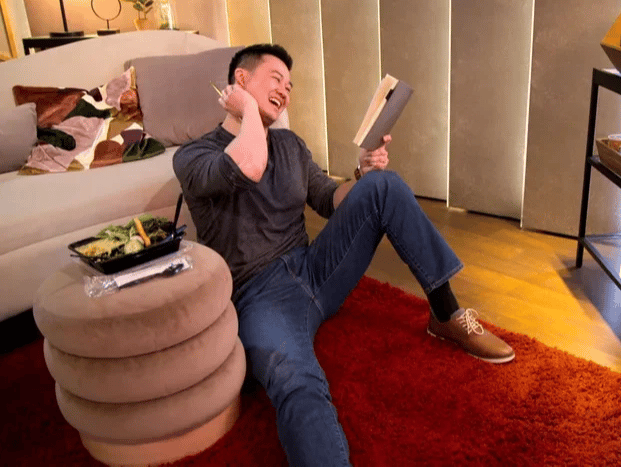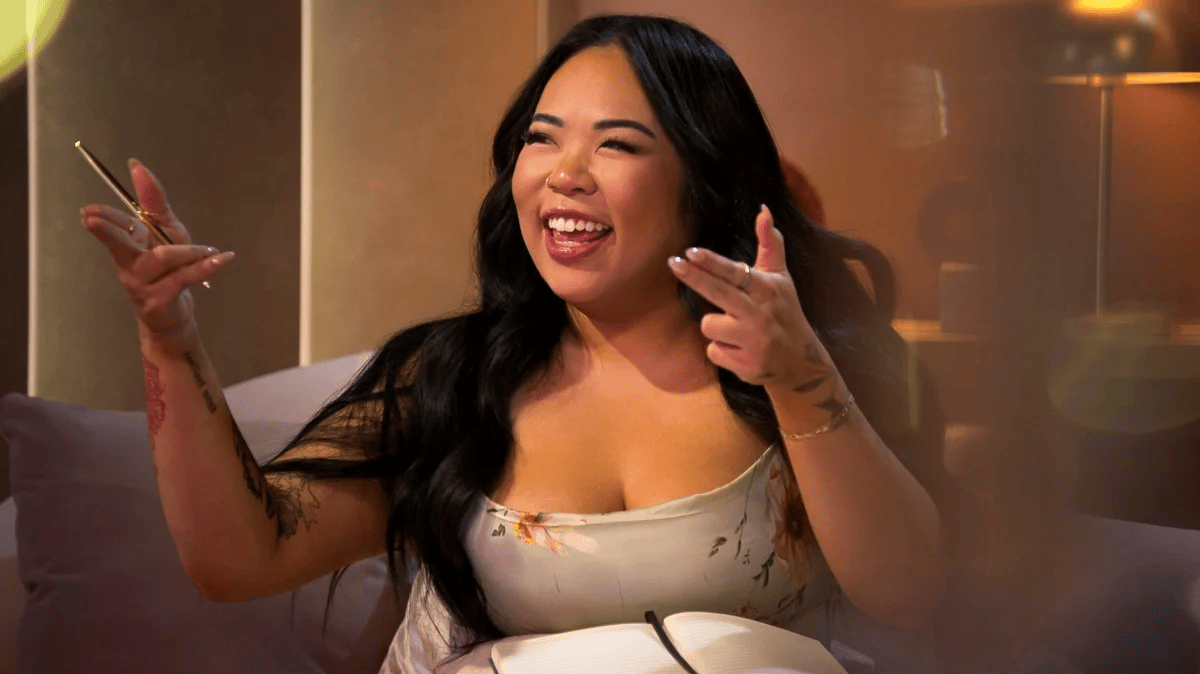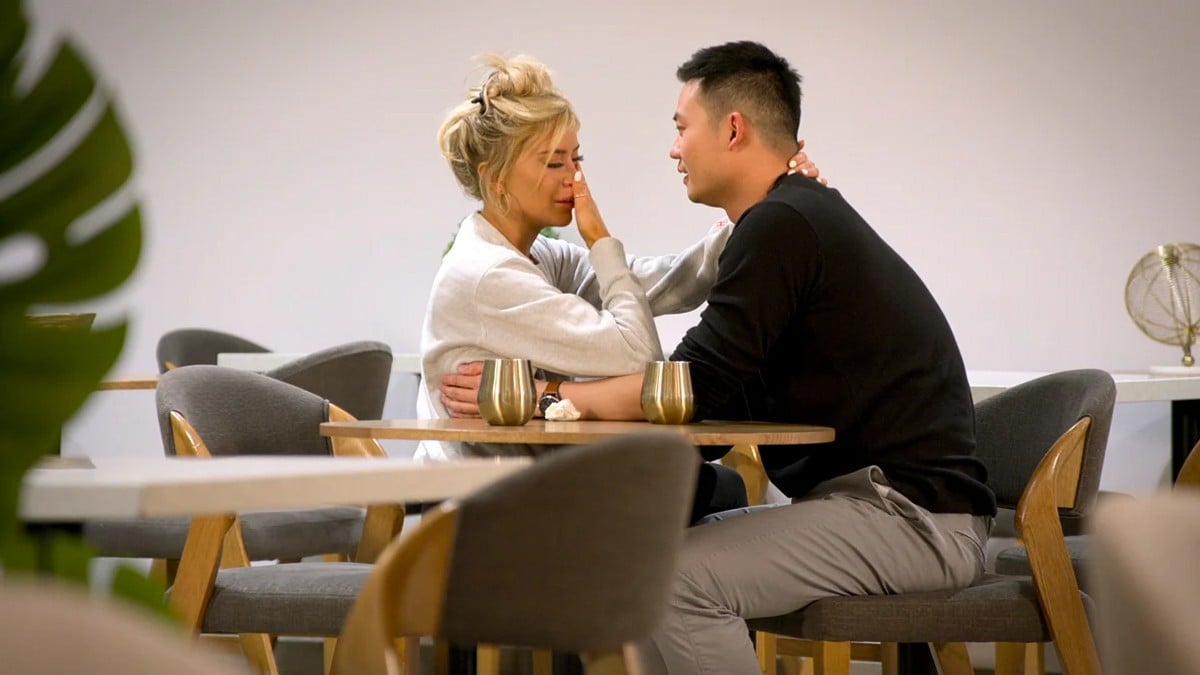
As we well know, reality TV is not typically an accurate source of reality. But every once in a while, you'll catch a glimpse of something on screen that precisely reflects the world we live in — and never in a good way.
The most recent season of Netflix's Love is Blind has just kicked off and already, it's a mess. I'm talking about out-of-touch comments about a woman's weight, archaic views on homosexuality, and a deeply uncomfortable moment where a male contestant repeatedly pressures his fiancée into having sex despite her clear discomfort and boundaries. It might be the worst season of the show yet.
But amongst the arguably more problematic scenes that had my blood boiling, there's one moment in particular this season that hit very close to home for me.
Watch: Patrick opening up about this ethnicity on Love is Blind. Article continues after video.
When the season first aired, I was pleasantly surprised to see — not just one — but two Asian American contestants: Patrick Suzuki and Anna Yuan. Because, listen… in an industry and a sub-section of entertainment that frequently dismisses Asian faces and stories, this was a win. And I was intrigued, to say the least.
But after sitting down to watch the first episode, I found myself sorely disappointed.
































































































